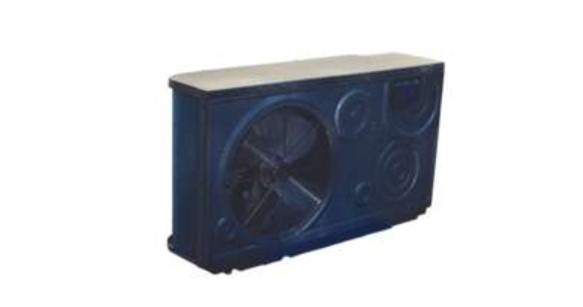
When people think about swimming pools, they often imagine enjoying a refreshing swim on hot days. But it's also important to consider what to do when the weather gets colder, which can make the pool water chilly.
This is where pool heat pumps or pool heaters come into play. They are essential equipment for swimming pools, ensuring that you can enjoy a comfortable swim regardless of the weather. But what are the benefits of using them, and how do they operate?
Here is a beginner’s guide to get you started. Read on to find out.
How Does a Heat Pump Work?
Heat pumps might sound like they only warm the water up, but they can actually lower the temperature as well. When in heating mode, they don't generate new heat; instead, they transfer existing heat from one place to another. In cooling mode, they take heat from inside and release it outside.
Is a Heat Pump Energy Efficient?
Heat pumps work by transferring heat from one location to another, and the energy needed to do this is primarily used to operate the compressor. This makes heat pumps one of the most energy-efficient heating options available, as they typically require about 1 kilowatt of energy to produce 4 kilowatts of heat.
Inverter Heat Pumps
Inverter technology enables you to achieve and maintain your desired temperatures more accurately and efficiently compared to other heating systems. This allows you to optimize your heating while keeping operating costs to a minimum.
Some of the most efficient heat pumps available can reduce your pool's energy consumption by as much as 30%.
Additionally, these heat pumps come with a convenient WiFi control feature, allowing you to adjust your pool's temperature remotely using your mobile device.
What is the difference between fixed output and inverter heat pumps?
The key distinction between a fixed output and an inverter heat pump lies in how they supply the necessary energy for heating.
A fixed output heat pump operates in an on-off manner. When it's on, it runs at full capacity (100%) to meet the heating needs.
On the other hand, an inverter heat pump utilizes a variable speed compressor that adjusts its output by increasing or decreasing its speed to precisely match the pool's heat requirements as outdoor temperatures change.
When there's lower demand, the inverter heat pump reduces its output, which helps save electricity and reduces wear and tear on its components, limiting the number of times it needs to start and stop.
How to Choose The Right Heat Pump?
Selecting the right heat pump or air conditioner can seem challenging with the abundance of choices.
However, before you decide, consider the following: What's the size of the space you need to heat or cool? How good is the insulation in that area? Where can you place the heating or cooling unit within the room?
Having clear answers to these questions will help you make an informed decision and choose the perfect heat pump that meets your unique requirements.
All In All: Who Should Opt for a Heat Pump?
In general, pool heat pumps or heaters are excellent choices for pool owners living in hot and humid climates.
These areas typically have consistently warm weather throughout the year, and even if it occasionally gets a bit cool, a suitable heat pump or pool heater can quickly bring the water to your desired temperature. Moreover, you can benefit from long-term cost savings.
Ultimately, there's no universal solution for heating pool water that fits every situation. If you have more questions or need specific advice about pool heat pumps or pool heaters, don't hesitate to reach out to our specialists for further information.